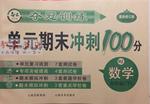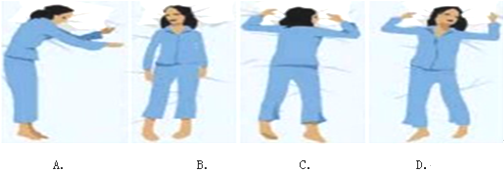题目内容
4.How often do we arrive at work or school stressed out,tired and angry?分析 有多少次我们极度焦虑、疲惫、恼怒地到达办公室和学校?
解答 答案:stressed
本句主句为How often do we arrive at work or school,所填部分为形容词短语做状语,表示伴随状况.be stressed out意思是很焦虑的意思,做状语修饰我们到办公室或者学校的状态.
点评 本题考查单词填空.首先要根据语境明确句意,然后再根据相关语法决定正确答案.

练习册系列答案
 夺冠训练单元期末冲刺100分系列答案
夺冠训练单元期末冲刺100分系列答案
相关题目
13.When I was 13my only purpose was to become the star on our football team.That meant(21)BMiller King,who was the best (22)Dat our school.
Football season started in September and all summer long I worked out.I carried my football everywhere for (23) A.
Just before September,Miller was struck by a car and lost his right arm.I went to see him after he came back from (24)C.He looked very(25)A,but he didn't cry.
That season,I(26)Ball of Miller's records while he (27)D the home games from the bench.We went 10-1and I was named most valuable player,(28)CI often had crazy dreams in which I was to blame for Miller's (29)C.
One afternoon,I was crossing the field to go home and saw Miller(30)A going over a fence-which wasn't (31)Bto climb if you had both arms.I'm sure I was the last person in the world he wanted to accept (32)Cfrom.But even that challenge he accepted.I(33)B him move slowly over the fence.When we were finally(34)D on the other side,he said to me,"You know,I didn't tell you this during the season,but you did(35)A.Thank you for filling in for(36)C."
His words freed me from my bad(37)D.I thought to myself,how even without an arm he was more of a leader.Damaged but not defeated,he was(38)Aahead of me.I was right to have (39)Dhim.From that day on,I grew (40)B and a little more real.
Football season started in September and all summer long I worked out.I carried my football everywhere for (23) A.
Just before September,Miller was struck by a car and lost his right arm.I went to see him after he came back from (24)C.He looked very(25)A,but he didn't cry.
That season,I(26)Ball of Miller's records while he (27)D the home games from the bench.We went 10-1and I was named most valuable player,(28)CI often had crazy dreams in which I was to blame for Miller's (29)C.
One afternoon,I was crossing the field to go home and saw Miller(30)A going over a fence-which wasn't (31)Bto climb if you had both arms.I'm sure I was the last person in the world he wanted to accept (32)Cfrom.But even that challenge he accepted.I(33)B him move slowly over the fence.When we were finally(34)D on the other side,he said to me,"You know,I didn't tell you this during the season,but you did(35)A.Thank you for filling in for(36)C."
His words freed me from my bad(37)D.I thought to myself,how even without an arm he was more of a leader.Damaged but not defeated,he was(38)Aahead of me.I was right to have (39)Dhim.From that day on,I grew (40)B and a little more real.
| 21.A.cheering for | B.beating out | C.relying on | D.staying with |
| 22.A.coach | B.student | C.teacher | D.player |
| 23.A.practice | B.show | C.comfort | D.pleasure |
| 24.A.school | B.vacation | C.hospital | D.training |
| 25.A.pale | B.calm | C.relaxed | D.ashamed |
| 26.A.held | B.broke | C.set | D.tried |
| 27.A.reported | B.judged | C.organized | D.watched |
| 28.A.and | B.then | C.but | D.thus |
| 29.A.decision | B.mistake | C.accident | D.sacrifice |
| 30.A.stuck | B.hurt | C.tired | D.lost |
| 31.A.steady | B.hard | C.fun | D.fit |
| 32.A.praise | B.advice | C.assistance | D.apology |
| 33.A.let | B.helped | C.had | D.noticed |
| 34.A.dropped | B.ready | C.trapped | D.safe |
| 35.A.fine | B.wrong | C.quickly | D.normally |
| 36.A.us | B.yourself | C.me | D.them |
| 37.A.memories | B.ideas | C.attitudes | D.dreams |
| 38.A.still | B.also | C.yet | D.just |
| 39.A.challenged | B.cured | C.invited | D.admired |
| 40.A.healthier | B.bigger | C.cleverer | D.cooler. |
14.In the doorway of my home,I looked closely at my 23-year-old son,Daniel.In a few hours he would be flying to France to(41)A a different life.It was a transitional time in Daniel's life.I wanted to(42)C him some words of significance.But nothing came from my lips,and this was not the(43)B time I had let such moments pass.
When Daniel was five,I took him to the bus stop on his first day of kindergarten.He asked,"What is it going to be like,Dad?Can I do it?"Then he walked(44)D the steps of the bus and disappeared inside.The bus drove away and I said nothing.A decade later,a similar (45)Bplayed itself out.I drove him to college.As I started to leave,I tried to think of something to say to give him (46)C and confidence as he started this new stage of life.Again,words(47)A me.
Now,as I stood before him,I thought of those (48)D opportunities.How many times have I let such moments (49)B?I don't find a quiet moment to tell him what they have (50)B to me or what he might (51)C to face in the years ahead.Maybe I thought it was not necessary to say anything.
What does it matter in the course of a lifetime if a father never tells a son what he really thinks of him?(52)A as I stood before Daniel,I knew that it did matter.My father and I loved each other.Yet,I always (53)B never hearing him put his(54)C into words.Now I could feel my palms sweat and my throat tighten.Why is it so (55)C to tell a son something from the heart?
My mouth turned dry,and I knew I would be able to get out only a few words clearly."Daniel,"I said,"if I could have picked,I would have picked you."That's all I could say.He hugged me.For a moment,the world (56)A,and there were just Daniel and me.He was saying something,but tears filled my eyes,and I couldn't understand what he was saying.All I was (57)C of was the stubble(短须) on his chin as his face pressed(58)B mine.What I had said to Daniel was (59)A.It was nothing.However,it was(60)D.
When Daniel was five,I took him to the bus stop on his first day of kindergarten.He asked,"What is it going to be like,Dad?Can I do it?"Then he walked(44)D the steps of the bus and disappeared inside.The bus drove away and I said nothing.A decade later,a similar (45)Bplayed itself out.I drove him to college.As I started to leave,I tried to think of something to say to give him (46)C and confidence as he started this new stage of life.Again,words(47)A me.
Now,as I stood before him,I thought of those (48)D opportunities.How many times have I let such moments (49)B?I don't find a quiet moment to tell him what they have (50)B to me or what he might (51)C to face in the years ahead.Maybe I thought it was not necessary to say anything.
What does it matter in the course of a lifetime if a father never tells a son what he really thinks of him?(52)A as I stood before Daniel,I knew that it did matter.My father and I loved each other.Yet,I always (53)B never hearing him put his(54)C into words.Now I could feel my palms sweat and my throat tighten.Why is it so (55)C to tell a son something from the heart?
My mouth turned dry,and I knew I would be able to get out only a few words clearly."Daniel,"I said,"if I could have picked,I would have picked you."That's all I could say.He hugged me.For a moment,the world (56)A,and there were just Daniel and me.He was saying something,but tears filled my eyes,and I couldn't understand what he was saying.All I was (57)C of was the stubble(短须) on his chin as his face pressed(58)B mine.What I had said to Daniel was (59)A.It was nothing.However,it was(60)D.
| 41.A.experience | B.spend | C.enjoy | D.shape |
| 42.A.show | B.send | C.leave | D.instruct |
| 43.A.last | B.first | C.very | D.next |
| 44.A.upward | B.into | C.down | D.up |
| 45.A.sign | B.scene | C.scenery | D.sight |
| 46.A.interest | B.instruction | C.courage | D.direction |
| 47.A.failed | B.discouraged | C.struck | D.troubled |
| 48.A.future | B.embarrassing | C.obvious | D.lost |
| 49.A.last | B.pass | C.fly | D.remain |
| 50.A.counted | B.meant | C.valued | D.eared |
| 51.A.think | B.want | C.expect | D.wish |
| 52.A.But | B.And | C.Instead | D.So |
| 53.A.wondered | B.regretted | C.minded | D.tried |
| 54.A.views | B.actions | C.feelings | D.attitudes |
| 55.A.important | B.necessary | C.hard | D.basic |
| 56.A.disappeared | B.changed | C.progressed | D.advanced |
| 57.A.afraid | B.convinced | C.aware | D.tired |
| 58.A.by | B.against | C.on | D.with |
| 59.A.simple | B.gentle | C.meaningful | D.moving |
| 60.A.none | B.nobody | C.anything | D.everything. |
